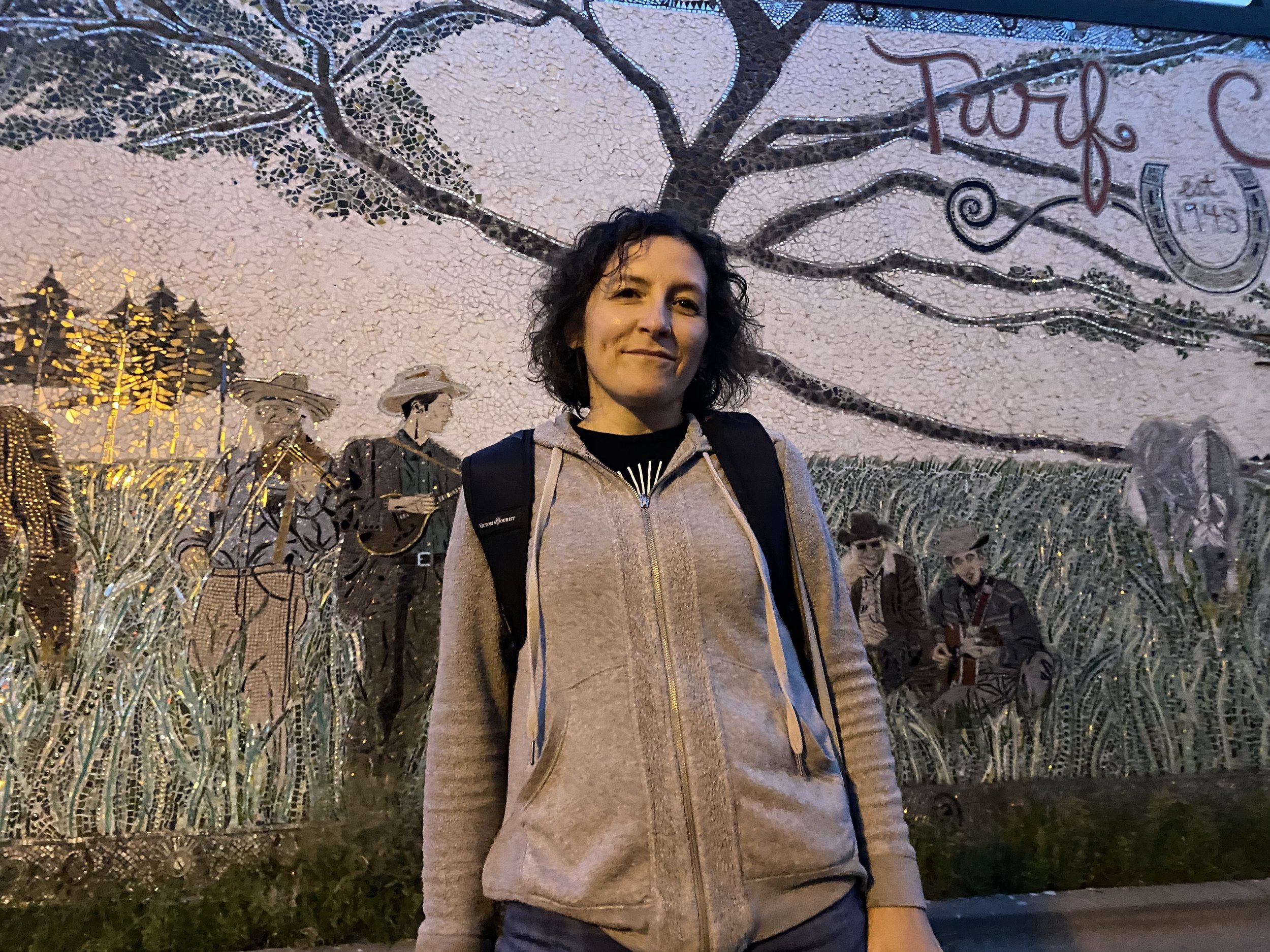Music Review: Vingard, ‘In the Long Run’
The Berlin-based Danish artist’s debut album is a rapturous hybrid of pop and Americana.
Genre-bending is all the rage these days, and I’m all for it. Our own definition of Americana here at AiA keeps blurring and expanding as we’re exposed to more and more music. Although I’ll always love “pure” strains of country, folk, old-time, bluegrass and other roots music, it’s interesting to see how artists meld their tastes and influences to create variations of Americana. Sometimes they’re genuinely surprising and appealing.
Such is the case with In the Long Run, the debut release from Vingard that came out Friday, September 1. The Berlin-based Danish artist has crafted a concoction of country and pop music mixed in a different way than I’ve ever heard before, and it’s thrilling.
At first listen, her melodies, instrumentation and vocal delivery read very pop. That’s especially true of the first two tracks, “The Long Run” and “Into the Woods,” which contain the synthesized instruments and swelling vocal crescendos I associate with pop music and whose melodic structure bears little resemblance to roots music.
Despite being well outside my wheelhouse genre-wise, Vingard’s voice is captivating. Her lyrics are vivid enough to paint pictures in my mind even though their cryptic nature eludes literal interpretation. This is an album that would benefit from a vinyl release with liner notes so you can pore over the lyrics, which are unique and enigmatic enough to belong in a poetry chapbook.
I enjoyed the first two songs enough to keep listening to the album, but I waffled over whether the record qualified even as my broad and ever-expanding definition of Americana.
But something interesting happens on the third track, “Are You My Story.” There are still synth elements, but when Vingard starts singing, the melody and tempo suddenly take on a country music nuance. The lyrics too paint a rural scene that enhance the Americana feel of the song:
A barely forgotten small town outside
Of where the big city roars
No street lights guiding you home at night
But you can smell the fireplace all right
A few barren houses next to the gate
Where the horses are carrying all of the weight
The fourth track, “Only Me to Blame,” opens with a simple acoustic guitar strum before adding in production effects. Despite sounding more pop than the previous song, there’s a dark and lonely timbre to the melody and lyrics:
Though the sun and the moon they stay the same
I’ve seen time don’t wait
I’ll have no one but me to blame
So goes the rest of the album. Surprising Americana elements crop up unpredictably, interrupting assumptions that this is a purely pop album: for instance, a subtle waltz tempo in “Don’t You Weep” along with lyrics that would be at home in a Carter Family gospel tune:
Don’t you weep when the day comes
Bury me right where I stand
Heaven’s doors will be open
Welcoming me
From the halls of my savior
I can let go of the wounds
With no gold or no silver
I’ve left this world to be whole
Another track, “Half the Battle,” opens with an Irish-inflected mandolin riff, unexpectedly joined by a snarl of what sounds like electric guitar that’s actually distorted pedal steel, according to the press materials. This odd pairing continues throughout the track and begins to feel inseparable; what felt incongruous at first comes to feel like the most perfect, natural pairing in the world.
The album closes with another surprise; the ballad “For You,” featuring soft fingerstyle acoustic guitar and Vingard’s powerhouse voice dialed back to a soft sweet croon.
From beginning to end, In the Long Run is stylistically bold, a pop-heavy album with dark, atmospheric lyricism and elements of American roots music employed sparingly, skillfully and with intention for maximum effect. It may live in the outer edges of the big tent that encompasses Americana music, but it’s a welcome addition to the family.
Carol Roth is a full-time marketing copywriter and the primary music journalist and social media publicist for Adventures in Americana. In addition to studying the guitar and songwriting, Carol’s additional creative side hustle is writing self-proclaimed “trashy” novels under the pseudonym T.A. Berkeley!


